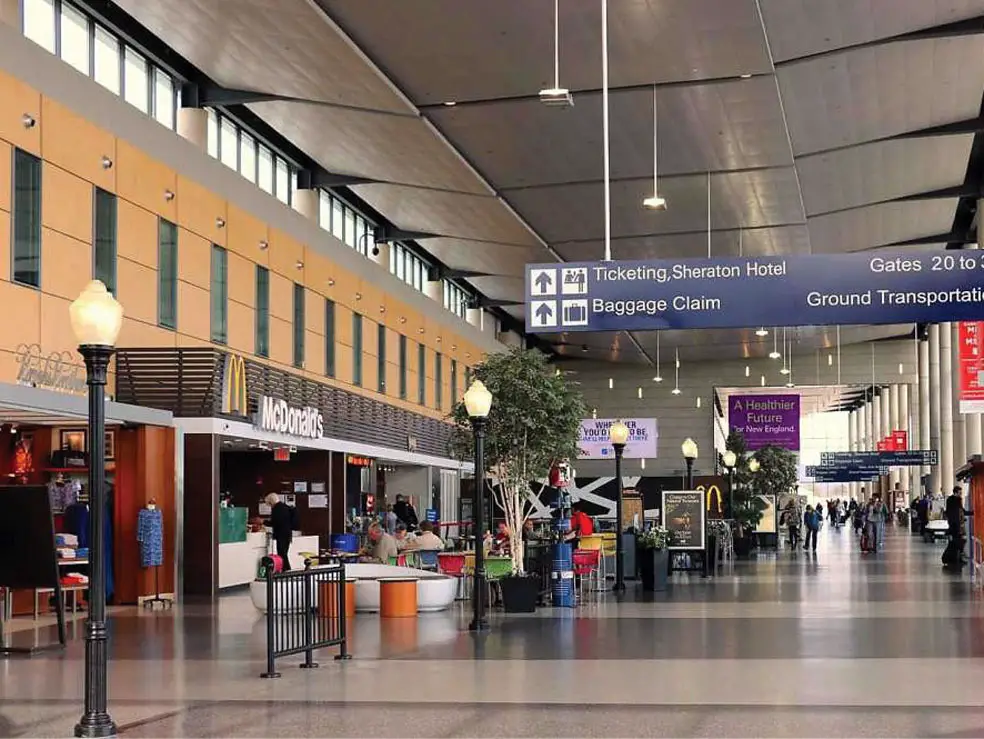Forward momentum at Sikorsky, Bradley airports could signal blue skies for area fliers

The sky may not be the limit when it comes to nearby air service. But ongoing expansion at Bradley International Airport in Windsor Locks ”“ and continuing progress on renovating Stratford”™s Igor Sikorsky Memorial Airport with an eye toward returning commercial services there ”“ could soon make travel a little breezier.
David Kooris, deputy commissioner at the state”™s Department of Economic and Community Development (DECD), said the agency is now working with the City of Bridgeport ”“ which owns Sikorsky ”“ to help fund improvements there that could bring back regular commercial airline service for the first time since the mid-1990s.
“The city approached us in the middle of 2018 with a prospective airline that is interested in becoming active at the airport,” Kooris affirmed. “It”™s contingent upon a series of improvements to the airport, including the runways, the taxiing area and the parking lots ”“ nothing too major.”
The state”™s agreement to get involved in the project was dependent upon forming a public/private partnership, a proviso Kooris said was satisfied by Bridgeport”™s securing what he called a “private entity” who is willing to commit at least $8 million to those renovations. As a result, DECD will put up $7 million if the project ultimately materializes.
“The state is not preemptively making an investment,” he expanded. Instead, both DECD and the private entity, which Kooris declined to name, would move forward only upon the approval of the Federal Aviation Administration.
The potential upgrades at Sikorsky, some of whose facilities have long been in need of repair, began picking up steam last fall with the commissioning of a master planning process, funded largely by the FAA. The agency provided $450,000 for the master plan and $170,435 for a noise study, with Bridgeport contributing $53,632 and Sikorsky ”“ which currently operates at an annual deficit of about $500,000 ”“ another $51,822.
Sikorsky Airport Manager Michelle Muoio said that regardless of whether commercial service returned there, the money was much needed “to rehabilitate and lengthen the lifespan of our runways, which are getting near the end of their useful life here.” Such work would extend their sufficiency for another 10-15 years, she said.
Muoio also cautioned that anyone envisioning jumping onboard a Boeing 787 for a trip to Europe should think again. “If we do bring back commercial service, (the aircraft) would not be any larger than the type we have now,” she said. The airline that has shown interest in Sikorsky would therefore be offering up to eight daily flights whose capacity would total 100-150, she added.
Although there are a lot of “ifs” involved ”“ the private and public funding, approval from the FAA and Bridgeport among them ”“ Muoio said that commercial service could return to Sikorsky as early as next year.
Meanwhile, Bradley International Airport recently announced that it experienced its sixth consecutive year of passenger growth in 2018, with nearly 6.7 million fliers representing a 3.6 percent increase over 2017”™s 6.4 million ”“ good news for the Connecticut Airport Authority (CAA), which took over management of the airport in 2013. The CAA, which was established as a quasi-public agency in 2011 to own, improve, and operate Bradley and the five state-owned general aviation airports.
“Our primary focus has always been air service and customer service,” said CAA Executive Director Kevin Dillon. “And that includes looking at adding airline routes that our customers are looking for, where we can.”
Recent additions include nonstop flights to Denver starting on March 28, and others to North Carolina, Florida and Pennsylvania by the summer. And although Southwest Airlines ended daily nonstop service to Las Vegas from Bradley last month, Dillon emphasized that it still offers one-stop flights to that city, and that the February decision “doesn”™t preclude it coming back next year.”
“We have a very good relationship with the business community at large,” Dillon said. “We are constantly reaching out to them to determine what their destination needs are.” The agency also has access to ZIP code and credit card data, which it aggregates to further discern interest, he said.
One of its current target nonstop destinations is Seattle. Delta, which already provides nonstop service to a number of U.S. cities, “may be a candidate” for that city, Dillon said, “but Alaska Air is just as likely.” That airline does not currently fly to or from Bradley.
Phoenix and various sites in the Caribbean are also on the CAA”™s wish list.
The agency is also moving forward with its 20-year, $1.4 billion master plan to accommodate its growing passenger population, which includes the construction of a new passenger Terminal B, as well as a ground transportation and a rental car center with 800 parking spaces. Dillon said the agency hopes to begin construction on the $210 million center as early as this spring.
Dillon said the CAA is also keeping tabs on a pair of bills that have been introduced in Hartford. SB 604 would require the submission of quasi-public agency employment and consulting contracts and separation agreements to the Attorney General and relevant legislative committee for review and comment. SB 917 would, among other things, redefine “privatization contract” and “state contracting agency,” and impose additional requirements on proposed privatization contracts.
Dillon argued that the added bureaucracy would only slow down the CAA”™s efforts at improvement, which in turn would dampen the momentum at Bradley and thus have a negative effect on its goals of attracting more customers.
While Dillon said he had no problem with more transparency, he questioned the approaches involved with the proposed bills. The Attorney General”™s office and the Department of Transportation “don”™t have the expertise” to review consultancy agreements with engineers and other vendors in an efficient manner, he said, adding that “it can be a very, very onerous process” to privatize state services.
“Those bills could bring our success to a grinding halt if we”™re not careful,” he said.